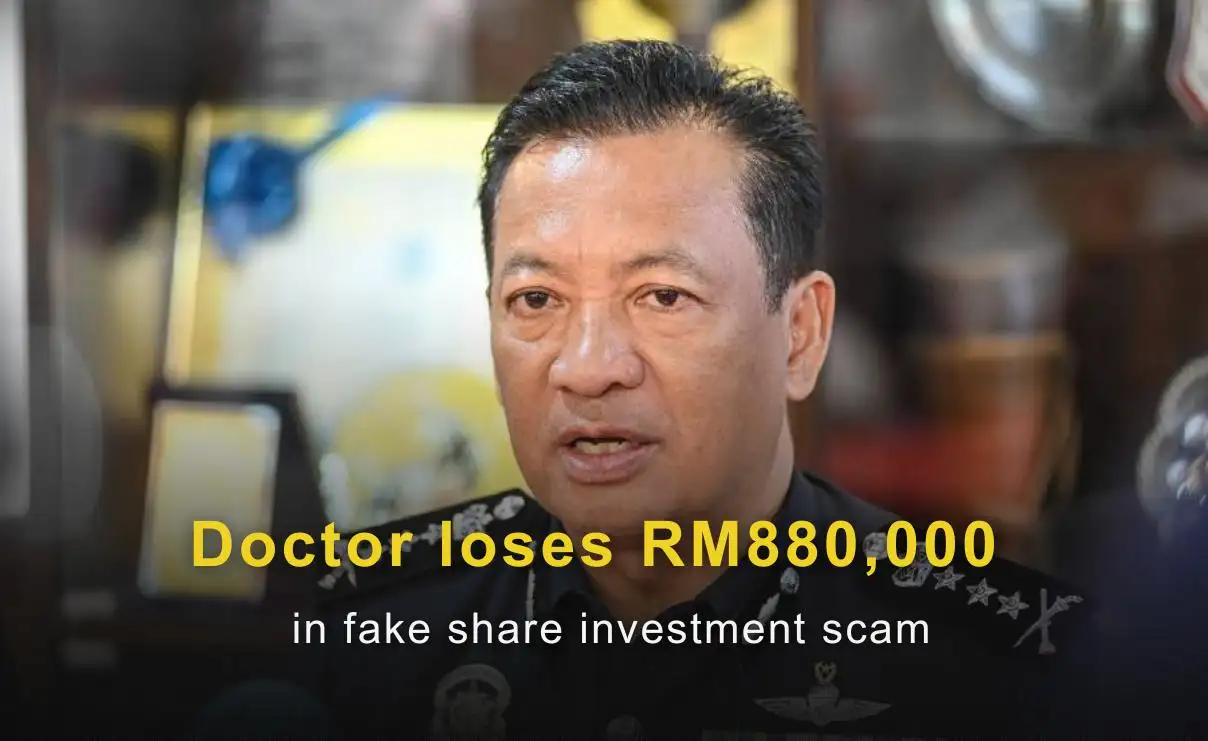Doctor loses RM880,000 in fake share investment scam
A doctor in Pahang lost over RM880,000 in a fake share scheme promising high returns
简体中文
繁體中文
English
Pусский
日本語
ภาษาไทย
Tiếng Việt
Bahasa Indonesia
Español
हिन्दी
Filippiiniläinen
Français
Deutsch
Português
Türkçe
한국어
العربية
Abstract:The cryptocurrency tax landscape in Nigeria is still evolving. However, crypto traders are required to pay a 10% tax on all their capital gains once the digital assets are sold off.


What does the law say about Crypto taxation in Nigeria
Cryptocurrencies are generally classified as digital assets subject to taxation in Nigeria today.
On May 28, 2023, former Nigerian president Muhammadu Buhari signed the 2023 Finance Act into law, which includes a provision to tax profits on digital assets, including cryptocurrency.
The new law imposes a 10% capital gains tax on the disposal of digital assets, including cryptocurrency. This tax is payable by individuals, businesses, and other entities that are resident in Nigeria. The tax is calculated on the difference between the purchase price of the digital asset and the sale price.
There are a few important things to note about the present cryptocurrency tax law in Nigeria today:
First, the tax is only payable on realized capital gains, which means that it is only payable when the digital asset is sold or disposed of.
Second, the tax is based on the fair market value of the digital asset at the time of disposal.
Finally, the tax is payable in Nigerian naira (NGN) which means the capital gains will have to be converted to Naira while calculating the capital gains.
Implications of the Crypto Tax Law in Nigeria
Here are the implications of the crypto tax law in Nigeria today:
● Cryptocurrency traders in Nigeria are expected to pay taxes on their profits.
● Taxes are payable once the digital assets are sold.
● Taxes are payable only in Nigerian Naira.
● Crypto traders are expected to report their capital gains for proper taxation.
How to calculate cryptocurrency taxes in Nigeria
To calculate your cryptocurrency taxes in Nigeria, you will need to track your capital gains and losses. You can do this by using cryptocurrency accounting software or by manually tracking your transactions.
Once you have tracked your capital gains and losses, you can use the following formula to calculate your capital gains tax:
Capital gains tax = (Capital gains - Capital losses) * Capital gains tax rate
For example, if you made a capital gain of N100 million from the sale of cryptocurrencies in a given year, and you had no capital losses, then your capital gains tax would be N10 million (N100 million * 10%).
How to pay cryptocurrency taxes in Nigeria
To pay your cryptocurrency taxes in Nigeria, you will need to file a self-assessment tax return with the FIRS. You can do this online or by submitting a paper form.
When filing your tax return, you will need to disclose all of your income, including any income from cryptocurrencies. You will also need to calculate your capital gains tax and other applicable taxes.
Once you have calculated your taxes, you can pay them online or by submitting a cheque or bank draft to the FIRS.
Conclusion
The cryptocurrency tax landscape in Nigeria is still evolving. It is important to stay up-to-date on the latest developments and to consult with a qualified tax advisor if you have any questions about the tax treatment of your cryptocurrency investments.

Disclaimer:
The views in this article only represent the author's personal views, and do not constitute investment advice on this platform. This platform does not guarantee the accuracy, completeness and timeliness of the information in the article, and will not be liable for any loss caused by the use of or reliance on the information in the article.

A doctor in Pahang lost over RM880,000 in a fake share scheme promising high returns

FIBO Group has grabbed attention from traders for mostly the wrong reasons, as traders have accused the broker of causing financial losses using malicious tactics. Whether it is about withdrawal access, deposit disappearance, trade manipulation, or awful customer support service, the broker is receiving flak from traders on all aspects online. Our team accumulated a list of complaints against the FIBO Group broker. Let’s screen these with us in this FIBO Group review article.

Do you have to pay taxes or margin when seeking fund withdrawals from GMO-Z.com, a Thailand-based forex broker? Do you witness heavy slippage when trading on the broker’s platform? These are some complaints traders have made against the broker. In this GMO-Z.com review article, we have explained these complaints. Take a look!

WikiFX has launched the “Inside the Elite” Interview Series, featuring outstanding members of the newly formed Elite Committee. During the committee’s first offline gathering in Dubai, we conducted exclusive interviews and gained deeper insights into regional market dynamics and industry developments. Through this series, WikiFX aims to highlight the voices of professionals who are shaping the future of forex trading — from education and compliance to risk control, technology, and trader empowerment.
